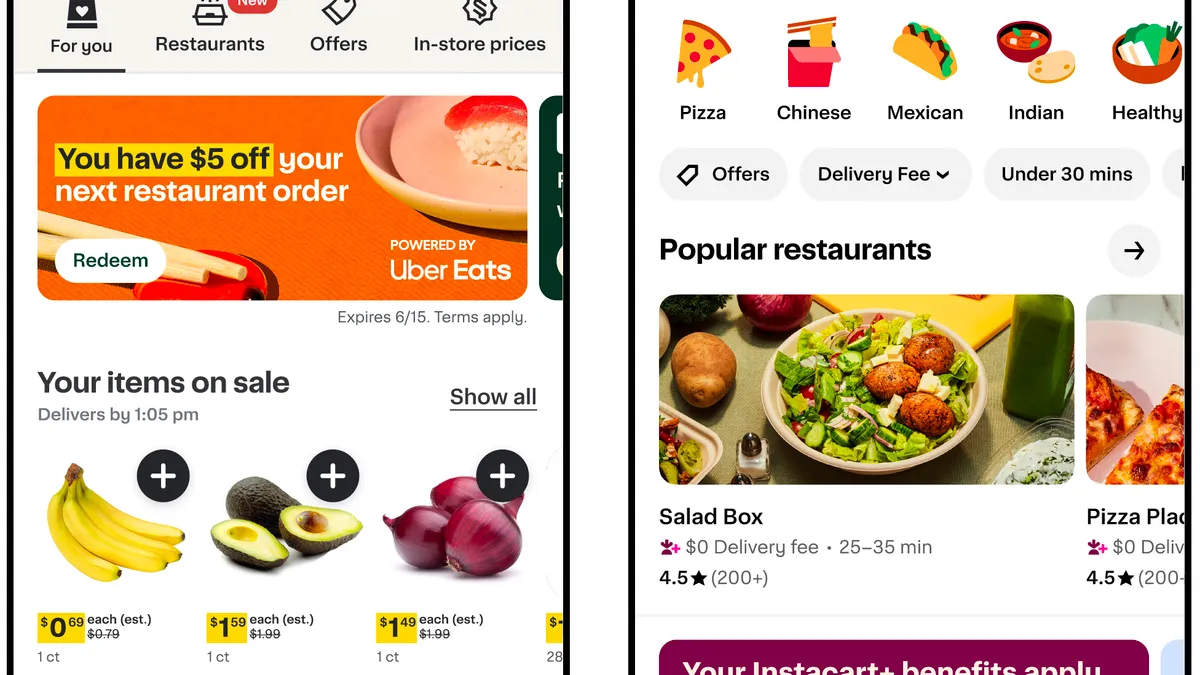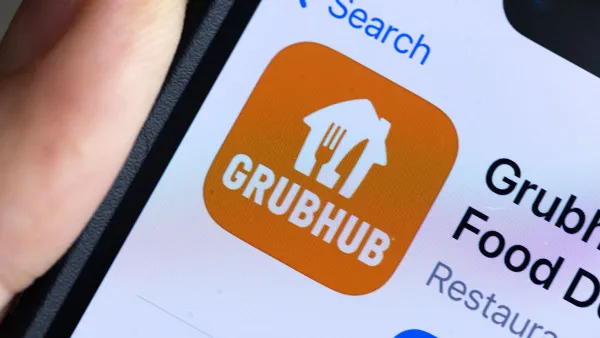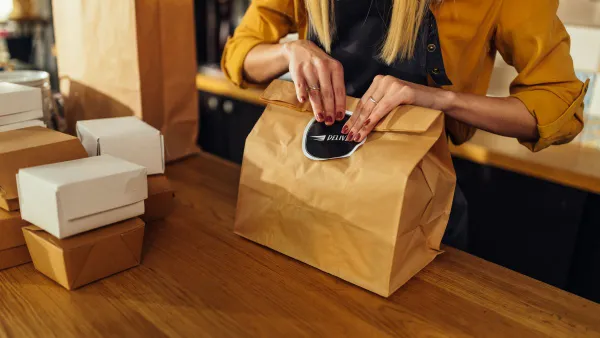Dive Brief:
- Instacart will soon offer restaurant deliveries through Uber Eats and its couriers, with an in-app “restaurant” tab set to deploy across the U.S. “in the coming weeks,” the companies announced Tuesday.
- As a result, “Instacart customers nationwide will be able to use the Instacart app to order from hundreds of thousands of restaurants, powered by Uber Eats,” the companies said. The press release does not state, nor have the companies clarified, whether Uber Eats partner restaurants must explicitly consent to being listed on Instacart’s app.
- Uber framed the partnership as a way to drive orders to its partner restaurants. When asked to clarify if Instacart orders had a different fee structure for merchants compared to regular Uber Eats orders, Uber said it would not go into the specific financial details of the deal.
Dive Insight:
By tapping into Instacart’s ecosystem, Uber could gain access “to millions of customers... including families in suburban markets,” according to the press release.
That reach may be vital to Uber Eats, which remains a distant second to DoorDash in terms of U.S. restaurant delivery market share among consumers, with 67% of consumers ordering through DoorDash and 23% through Uber Eats in March, according to Bloomberg Second Measure. Uber also recently struck a deal to become Domino’s third-party delivery provider, though Domino’s retained its in-house delivery capabilities, potentially limiting Uber Eats’ ability to capture new consumers.
In a statement emailed to Restaurant Dive, Uber said there would be no difference in menu pricing compared to the prices on Uber Eats’ own platform, and that couriers “will be paid the same way they would be for orders directly from Uber Eats.” Given that Instacart suffered a $2.1 billion loss from operations in 2023, it’s unclear how this development will be profitable for either company.
As local governments and federal agencies look more aggressively at junk fees charged to consumers, delivery companies are likely to find their fee practices under regulatory scrutiny. Recently, Uber Eats helped formulate and pass a law in Florida banning local governments from regulating food delivery, which would likely preclude fee regulations specifically targeting delivery aggregators.














